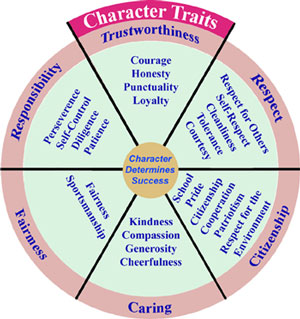By Tim Elmore of growingleaders.com
As 2015 came to a close, an unbelievable story resurfaced in the news. Do you remember hearing about Ethan Couch, the kid who got drunk, drove his pickup truck off the road, killed four people, and then ran from the accident to avoid the consequences? (I blogged about this story in 2014.) While this is appalling enough, the story went viral when we heard his attorney’s defense for his conduct: Affluenza.
Affluenza is a term (used tongue-in-cheek) by some psychologists to describe the inability for adolescents to even know what’s appropriate because they grew up with privileges and money. It blinds them from seeing right from wrong, and life is pretty much about them. In short, affluence clouds clear judgment. Ethan was caught, but due to his Affluenza, he avoided prison time and was put on probation.
That is, until last week, when the story took a dramatic turn.
Ethan’s mother, Tonya, actually helped him escape his Texas probation and flee to Mexico. Yes, she sure did. Mama felt his light sentence (no prison, just probation) was too much for her boy to handle, and wanted to free him from the clutches of the law. In fact, before escaping to Mexico, she actually threw a going away party.
Enabling Young People
Psychologists have used a term for decades now to describe what this mom is doing. They call it: enabling. It’s when a leader actually fosters unhealthy behavior. It usually happens due to conflicted motives—we want what’s best but feel sympathy for the other person and somehow feel we should lighten their emotional burden. In this case, because Tonya felt sorry for Ethan, she overlooked the obvious negative consequences to her actions and eased the pain he felt today. Equally sad is that Ethan is no longer a minor; he’s 18 years old.
But when adults lead kids like this, they can be 18 and still not be adults.
An enlightening study was released out of the UK. The research shows that people don’t see age in terms of years, but in terms of major life events. Further, most don’t feel like adulthood really begins until 29 years old. That’s incredible to me. Although our young adults are rich in potential, we don’t really expect them to perform responsible acts until a full decade later than we expected a century ago. I believe it’s criminal, both for our kids and our society. In many states, we give them the rights to adulthood at 18 or 21, like smoking, drinking or voting. We don’t, however, expect the responsibilities. It’s wrong. They should always go together.
Six Very Bad Trade Offs to Avoid
While this story is preposterous, it is a picture of so many adults today. We enable our kids and prevent them from maturing into healthy leaders. In other words, be very careful that as you lead teens and twenty-somethings, you don’t:
1. Unwittingly teach them to dodge responsibility to avoid pain.
No matter what the circumstance, we enable our kids when we help them run from duty. We can certainly debate what duties are suitable, but we must always teach them to never dodge responsibility in the name of personal comfort.
2. Put their happiness today above discipline.
When adults incessantly talk about just wanting our kids “to be happy,” we send the message that personal happiness is a higher priority than discipline. I have found I am most happy when I have built self-discipline in my life. It breeds self-respect.
3. Condition them to escape risks simply to guarantee safety.
Our obsession with safety has actually damaged kids emotionally. They may be safer physically, but they are growing up risk-averse. An unhealthy pursuit of safety tells students to avoid risk. Our nation was built on risk, with no guarantees.
4. Enable them to feel entitled to perks by helping them take shortcuts.
Pleasure is a high priority in our culture today. We live for weekends and we suffer from FOMO (Fear of Missing Out) and YOLO (You Only Live Once). This hinders us from thinking long-term; we feel entitled to perks today and can’t delay gratification.
5. Foster narcissism in them by putting their own desires above the law.
Ethan Couch has been unwittingly taught to think of himself before others. He killed four people and ran from his consequences twice. How can we expect our kids to see the bigger picture of their community if we’ve conditioned them to put me first?
6. Prioritize today at the expense of tomorrow.
Our kids will not mature into healthy adults in twenty years if we’ve conditioned them to think only about today. Tonya Couch’s poor leadership blinded her son. Here’s a quote for the New Year: Never give up what you want most for what you want now.
In the end, Tonya didn’t help her son Ethan at all. Both may now face prison time, and she could serve up to ten years. Her bail has been set for a million dollars. The lesson for us is clear: enabling costs everyone in the end.

About Tim
Dr. Tim Elmore is the founder and president of Growing Leaders, an Atlanta- based non-profit organization created to develop emerging leaders. Through Growing Leaders, he and his team provide public schools, state universities, civic organizations, and corporations with the tools they need to help develop young leaders who can impact and transform society. MORE
 I were asked to go to Swan Lake I would have asked if we were water skiing or fishing.
I were asked to go to Swan Lake I would have asked if we were water skiing or fishing.
